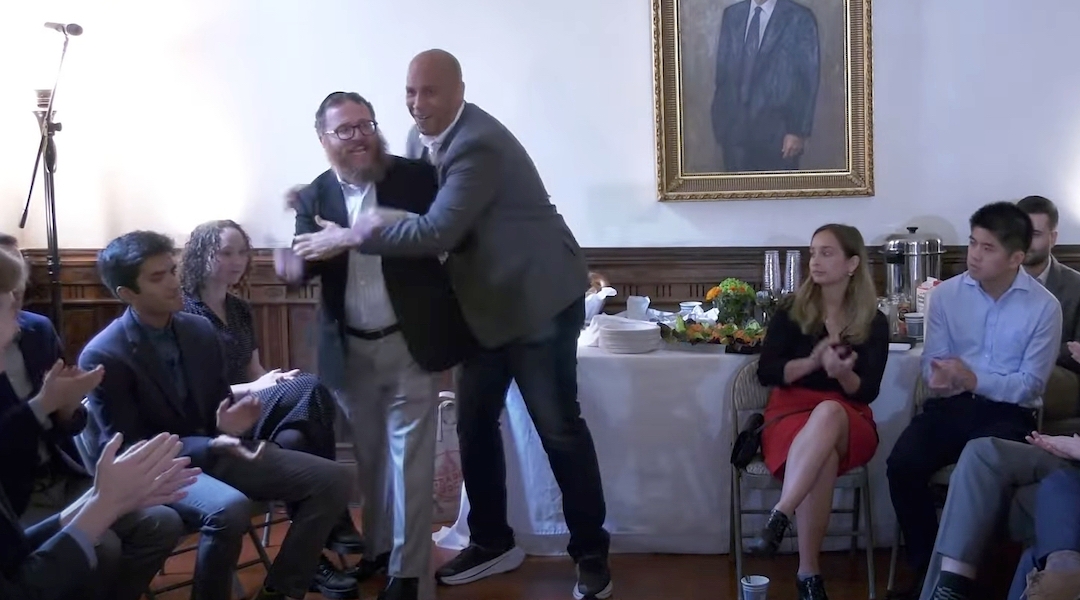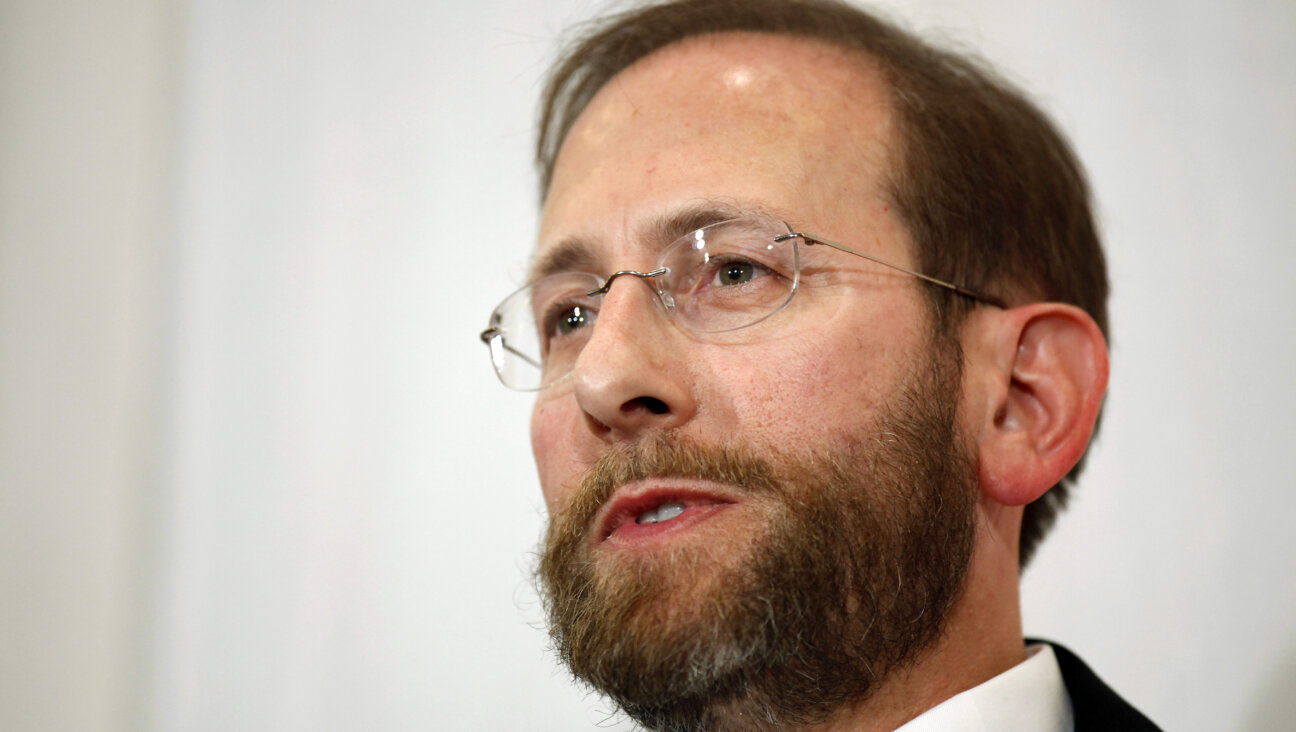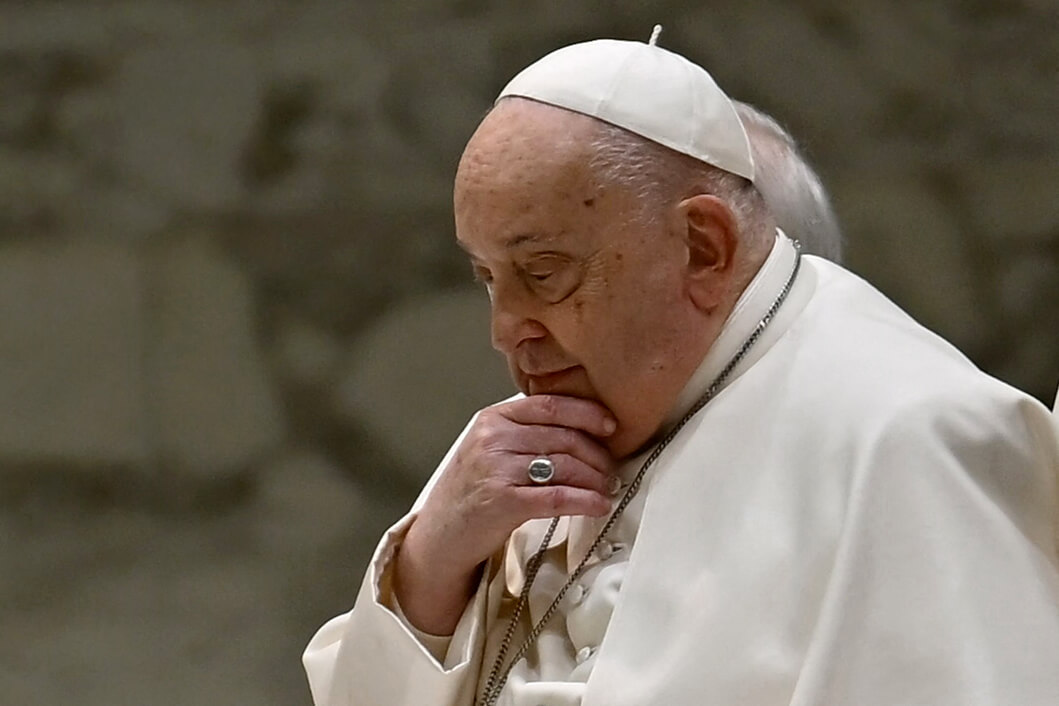Germans Reexamine Their Own WWII Suffering
The landscape of German communal memory has undergone a seismic shift in the past year, if a series of film screenings and panel discussions over the next month at New York’s Goethe Institute is any indication.
Until recently, any German discussion of World War II focused on the pain the Nazis inflicted on others. The suffering of German civilians was taboo for fear that any other treatment might serve to justify Nazi crimes. But during the past year the German public has, in spite of foreign objections, begun a widespread discussion of what the German population endured during the onslaught of the allies.
The crudest and most easily dismissed movement in this direction has been the proposed Center for the Expelled in Berlin. The new building would be a museum to memorialize the approximately 11 million “ethnic” Germans who were forced out of their homes in Eastern Europe during and after World War II — a memorial that would, according to plans, have little reference to the atrocities committed by Germans at the same time.
A subtler, but no less notable, development has occurred in the arts and letters, where a group of authors and historians have made the first prominent efforts to document and anatomize the deprivation and misery that German civilians experienced during allied attacks on the country.
In a review of a few of these works, a German paper announced, “It is high time to bring to words the suffering of the German civilian populations, in order to show a complex picture and finally allow the victims justice, empathy, memory and recognition.”
The two most prominent works in this movement have been the novel “Crabwalk,” by the Nobel laureate Günter Grass, and “Der Brand” (“The Fire: Germany Under Bombardment 1940-1945”), by German historian Jorg Friedrich.
Grass’s 2002 novel, which recently appeared in English, is a fictional account of the sinking of the Wilhelm Gustloff. In the spring of 1945 the Gustloff was carrying 9,000 German refugees in the Baltic Ocean when the overloaded ocean liner was torpedoed by a Soviet submarine and went down with almost every civilian on board. The deaths of so many civilians at this late point in the war served little military purpose, and Grass does not shy away from the fact.
In “Der Brand,” which has not been translated into English, Friedrich trains a critical eye on the British firebombing campaign that hit 131 German towns and cities. When describing the burned corpses and savage destruction left after the bombings, Friedrich uses emotionally charged language that is eerily reminiscent of language normally reserved for discussions about the Holocaust.
Soon after Friedrich’s book was serialized in Germany’s biggest tabloid newspaper, a slew of magazine articles and television shows took up the theme and bombarded German homes with images of German cities and citizens in flaming ruins.
Throughout October, the Goethe Institute, in partnership with the Leo Baeck Institute, which focuses on the history of German Jewry, will be offering Americans a rare chance to see translated works from this contemporary cultural trend and take part in the debate over the propriety of their existence.
On October 7, October 15 and October 21, the Goethe Institute will be screening a few recent films that show the war from the vantage point of German civilians. The series will culminate in a panel discussion on October 29 considering the morality of the broader movement.
Not everyone sees these works as such a new development. Andrei Markovits, author of “The German Predicament: Memory and Power in the New Europe” (Cornell University Press), said that, among conservatives in Germany, there has long been a tendency to try to exculpate Nazi crimes by comparing them to allied attacks on civilian populations.
“At German get-togethers,” Markovits said, “questions about the moral equivalence of Nazi crimes and allied attacks were always there. It is new only in the left-wing intelligentsia’s willingness to talk about these things publicly.”
In the old East Germany, the Communist government frequently brought up the destruction wrought by the British and Americans to show that even in victory the capitalists are not worth emulating. In West Germany, many local studies documented and cataloged the damage done during the firebombing campaigns.
But none of these discussions were all that prominent, and in 1997, the novelist W.G. Sebald gave a series of lectures in which he pointed out how few works had been published about the human suffering of the Germans. Sebald’s lectures, which were recently translated into English as “On the Natural History of Destruction” (Random House), can be seen as the intellectual foundation for much of the recent work.
He explained that after World War II, “There was a tacit agreement, equally binding of everyone, that the true state of material and moral ruin in which the country found itself was not to be described.”
“Der Brand” is a very literal response to Sebald’s call to other historians and writers for “a scientific account of the previously unknown phenomenon of the firestorms.”
Only with the appearance of Friedrich’s book has the notion of German victims entered the public consciousness in any widespread way, according to Michal Bodemann, a professor of German-Jewish relations at the University of Toronto, who spent the last year in Germany.
“There has been private memory of family member’s dying. But this public debate is really a new phenomenon.”
It seems no coincidence that the popular interest in Germany’s past became more pronounced at the same time as the German government made its first public turn away from the United States over the war in Iraq.
Germans united over their opposition to America’s war plans and, for the first time ever, felt proud of being German and able to repudiate the traditional image of the United States as hero and savior.
When bombs began to fall on Bagdhad, a number of newspaper articles appeared with recollections from elderly Germans who remembered when American bombs had fallen on them.
Many critics have been disconcerted by the way these memories have become cut off from the recognition that Germany brought this bombing on itself.
It is worth noting, though, that for the last 50 years the structure of German society has been oriented around the remembrance of the Holocaust so that no discussion in Germany can take place outside the context of those atrocities.
Bodemann said, “The German memorializing of the Shoah has been so fervent as to be almost strange, and always to the exclusion of memories of their own dead.”
But the larger question remains if that is as it should be. Should penance be the lot of the Germans, or can they ever look upon themselves and their past as another human story of suffering and sadness?
The Forward is free to read, but it isn’t free to produce

I hope you appreciated this article. Before you go, I’d like to ask you to please support the Forward.
Now more than ever, American Jews need independent news they can trust, with reporting driven by truth, not ideology. We serve you, not any ideological agenda.
At a time when other newsrooms are closing or cutting back, the Forward has removed its paywall and invested additional resources to report on the ground from Israel and around the U.S. on the impact of the war, rising antisemitism and polarized discourse.
This is a great time to support independent Jewish journalism you rely on. Make a gift today!
— Rachel Fishman Feddersen, Publisher and CEO
Support our mission to tell the Jewish story fully and fairly.
Most Popular
- 1

Opinion The dangerous Nazi legend behind Trump’s ruthless grab for power
- 2

Opinion A Holocaust perpetrator was just celebrated on US soil. I think I know why no one objected.
- 3

Culture Did this Jewish literary titan have the right idea about Harry Potter and J.K. Rowling after all?
- 4

Opinion I first met Netanyahu in 1988. Here’s how he became the most destructive leader in Israel’s history.
In Case You Missed It
-

Culture I have seen the future of America — in a pastrami sandwich in Queens
-

Culture Trump wants to honor Hannah Arendt in a ‘Garden of American Heroes.’ Is this a joke?
-
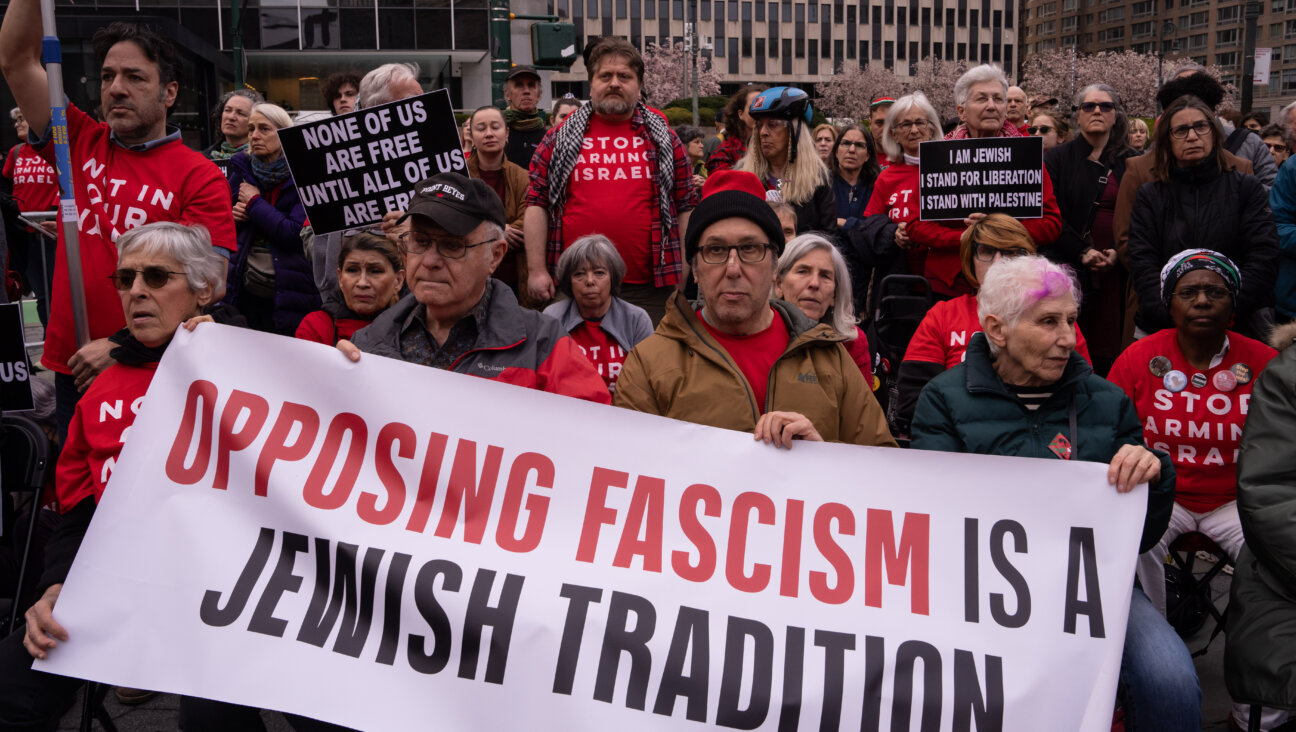
Opinion Gaza and Trump have left the Jewish community at war with itself — and me with a bad case of alienation
-
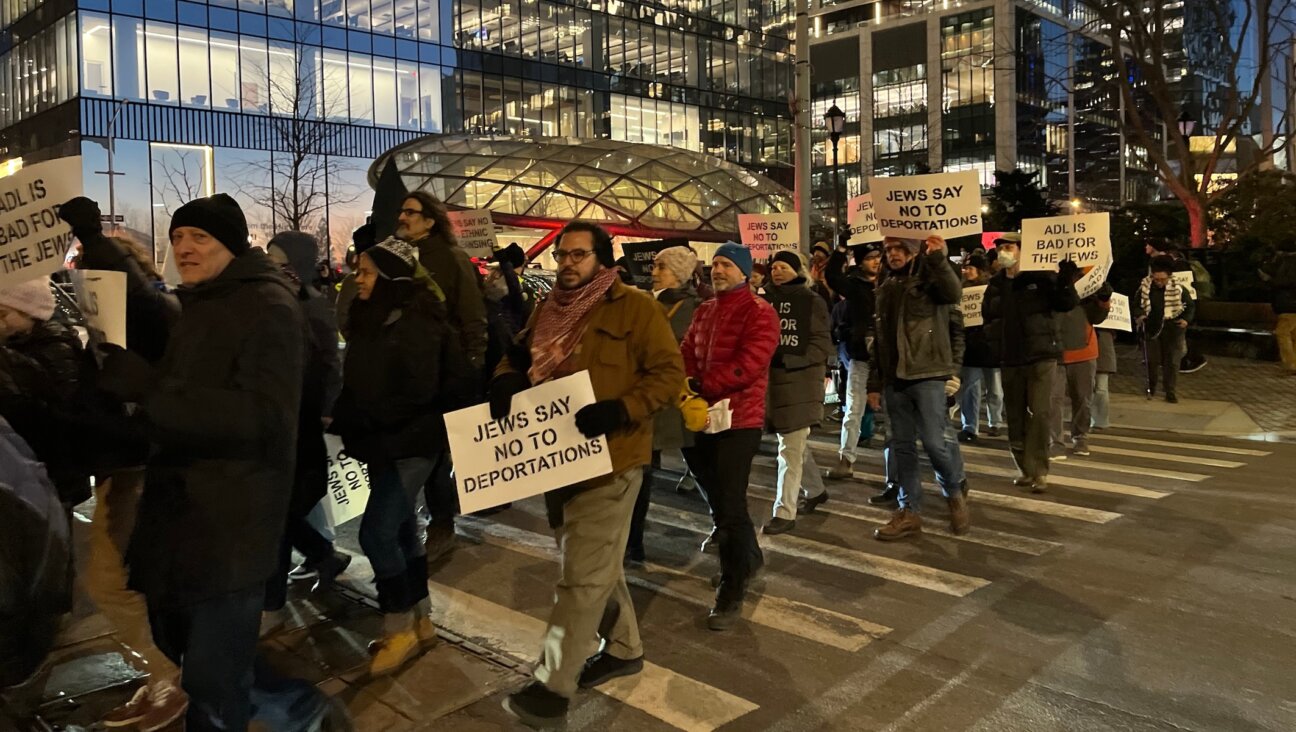
Fast Forward Trump administration restores student visas, but impact on pro-Palestinian protesters is unclear
-
Shop the Forward Store
100% of profits support our journalism
Republish This Story
Please read before republishing
We’re happy to make this story available to republish for free, unless it originated with JTA, Haaretz or another publication (as indicated on the article) and as long as you follow our guidelines.
You must comply with the following:
- Credit the Forward
- Retain our pixel
- Preserve our canonical link in Google search
- Add a noindex tag in Google search
See our full guidelines for more information, and this guide for detail about canonical URLs.
To republish, copy the HTML by clicking on the yellow button to the right; it includes our tracking pixel, all paragraph styles and hyperlinks, the author byline and credit to the Forward. It does not include images; to avoid copyright violations, you must add them manually, following our guidelines. Please email us at [email protected], subject line “republish,” with any questions or to let us know what stories you’re picking up.







